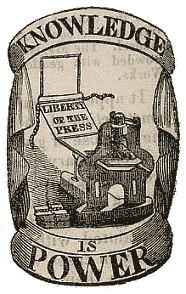


The Global Warming zealots and Ecologists may have created a problem of unintended consequences for our country and the world.
Because of the demand for fuels made of grain products like corn and wheat, to replace fossil fuels, there is a growing shortage world wide of wheat and corn.
Military use of bio fuels is also being explored. Sandia, UOP, Honeywell Aerospace and Cargil are involved in a joint effort to develop JP-8 jet fuel from Soy beans and other food grains to fuel military jets.
They are working together to help develop, evaluate and commercialize the processes of bio feedstock and bio fuel production that will scale-up pathways needed to enable reliable, high-volume, competitively priced jet fuel production based on vegetable and/or algae oil rather than petroleum.
“The focus of our renewable energy efforts has been to develop technologies that align with today’s standard refinery practices, but allow a broader range of feedstock options,” says Jennifer Holmgren, director of UOP’s Renewable Energy and Chemicals business unit. “
“The focus of our renewable energy efforts has been to develop technologies that align with today’s standard refinery practices, but allow a broader range of feedstock options,” says Jennifer Holmgren, director of UOP’s Renewable Energy and Chemicals business unit. “
This shortage has already shown up in our grocery bills. Bread and cereals have been priced higher, and the price raises will only get worse before they get better.
Beef prices will soar, because to produce a fat steer one must feed it large amounts of grain.The same for pork, lamb and other popular meats. They all will cost more as the supply of grains for food is reduced by the stampeded to produce bio-fuels. Wheat prices in U.S. futures markets hit a whopping $24 a bushel. The price of wheat has doubled already this year, and risen from just $3 a bushel four years ago. The blame for this is laid at the feet of the Goreites!
Even the Palestinians in the Middle East are suffering as they have just seen up to 90 percent of their crops wiped out by extraordinary frosts and cold weather.
It's grim news for everybody. The global economy is just about coping with the sub-prime crisis, the fall of the dollar and oil at $102 a barrel. But the inflationary surge in the costs of food, which now dwarfs the rise in oil prices, could prove to be the final straw.
World grain reserves are at their lowest levels since records were first kept back in 1960, and the U.S. stockpile had not been this low since 1948.
This problem has been coming for some time, driven by three separate factors. The first is overall population increase. The second is that emergent economies like China and India are climbing up the prosperity chain and demanding more meat protein, which takes eight times as much land to produce as vegetable protein. The third is that short-sighted government subsidies for bio fuels is eroding the amount of crops available for eating.
This is already having important political effects around the world. Pakistan has re-introduced food ration cards, an unpopular and crisis-driven move that has contributed to the unpopularity of President Pervez Musharraf and helps explain his party's recent stinging electoral defeat.
Egypt has extended its own food rationing system, and the Indian government is straining to maintain its food price subsidy system as the costs soar. China and Russia are imposing price controls, and Argentina and Vietnam are reducing supplies to the world market through rationing and higher export taxes.
World grain reserves are at their lowest levels since records were first kept back in 1960, and the U.S. stockpile had not been this low since 1948.
This problem has been coming for some time, driven by three separate factors. The first is overall population increase. The second is that emergent economies like China and India are climbing up the prosperity chain and demanding more meat protein, which takes eight times as much land to produce as vegetable protein. The third is that short-sighted government subsidies for bio fuels is eroding the amount of crops available for eating.
This is already having important political effects around the world. Pakistan has re-introduced food ration cards, an unpopular and crisis-driven move that has contributed to the unpopularity of President Pervez Musharraf and helps explain his party's recent stinging electoral defeat.
Egypt has extended its own food rationing system, and the Indian government is straining to maintain its food price subsidy system as the costs soar. China and Russia are imposing price controls, and Argentina and Vietnam are reducing supplies to the world market through rationing and higher export taxes.
Some food industry executives are already starting to use the dreaded F word for Famine. This could make Saudi Arabia reconsider its decision to stop growing wheat and start importing some 3 million tons a year. It should not. With intelligent use of arable land for food crops, suitable irrigation and seed technology and an end to market-distorting farm subsidies, the world can produce enough food. It is a political problem we face, rather than a food shortage. Source: The Mideast Times 2/29/08
We will not only be subject to gasoline prices of $5.00 per gallon, but we may have to resort to food rationing as have many country's like India and Pakistan if the bio. fuels situation gets out of hand. Certainly if the UN has it's way we will have to share what food products we have with the rest of the impoverished rest of the World.
This is a gift sharing that is noble, but may result, if people like Obama are elected, in shortages in food supplies here in America unlike anything since the days of food stamps during WWII!








No comments:
Post a Comment